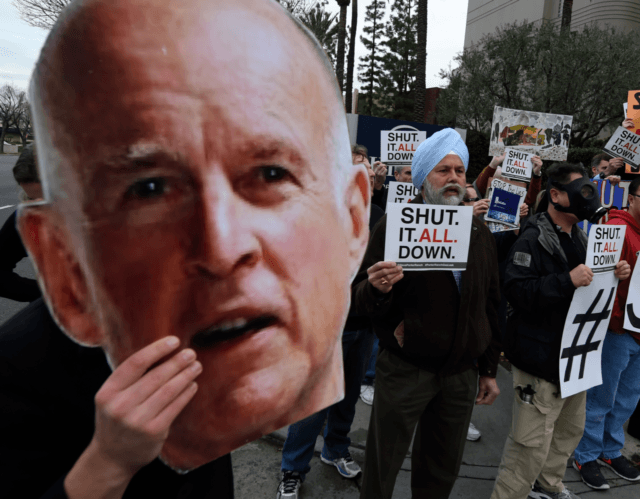Gov. Jerry Brown’s distant vice presidential prospects may be more remote than ever, as a state appellate court appears ready to strike down California’s “cap-and-trade program as an unconstitutional tax.
In 2006, the California legislature passed the “Global Warming Solutions Act of 2006,” also known as “cap-and-trade,” supposedly to fight global warming by establishing a comprehensive program to reduce greenhouse gas emissions from all sources throughout the state. Referred to by critics as “cap-and-tax,” the law’s $4 billion in revenues have been a luscious honey-pot to sooth state politicians’ spending fantasies.
The Sacramento Bee reported that “cap-and-tax,” by vacuuming up of rivers of cash from electric utility bills and retail gas purchases, allowed the state’s “May 2015 Revised Budget” to fund high-speed rail, build port infrastructure and nurture urban rivers. But it also allocated almost $500 million to “disadvantaged communities” that just happened to be dominated by Democrat members of the Legislature.
The gravy train ran out of grease in mid-May 2016, when the 3rd District Court of Appeal in Sacramento began reviewing a lawsuit filed by the California Chamber of Commerce and Morning Star Packing Company against the law. The court appeared sympathetic to claims that the auction portion of the state’s cap-and-trade program is an unconstitutional tax.
The business plaintiffs argued that if the cap-and-trade program is a tax, it is illegal, because it was only approved by a simple majority of the legislature, rather than the two-thirds majority that is needed to approve a tax.
Although a lower court in 2013 sided in favor of the state and the California Air Resources Board defendants, finding that the cap and trade was a form of commerce, the appellate court appeared so persuaded by the business plaintiffs’ arguments, it asked both parties in mid-May to provide legal arguments regarding how the court would implement a decision against the state and the ARB should it choose to do so.
Cara Horowitz, a UCLA School of Law professor that represents the Nature Conservancy, told the Los Angeles Times: “The questions suggest that the court might be inclined to use a standard for judging whether the auction is a tax that the state had argued against applying.”
With a risk of the entire the program becoming unconstitutional, the May 18 quarterly auction that was expected to raise $600 million only sold one tenth of the carbon credits offered, and for just $10 million.
The possibility that the $2.4 billion in cap-and-trade revenues in the state’s 2016/2017 fiscal year budget, which begins July 1, could evaporate threatens to plunge California into another severe financial crisis.
Jerry Brown had been a Democratic Party star from 2012 through 2015, with California growing jobs twice as fast as the rest of the nation. But with Moody’s credit rating service warning that California is the state least prepared for a recession, and now the courts threatening to tank the state budget, Jerry Brown’s national prospects have dimmed.

COMMENTS
Please let us know if you're having issues with commenting.